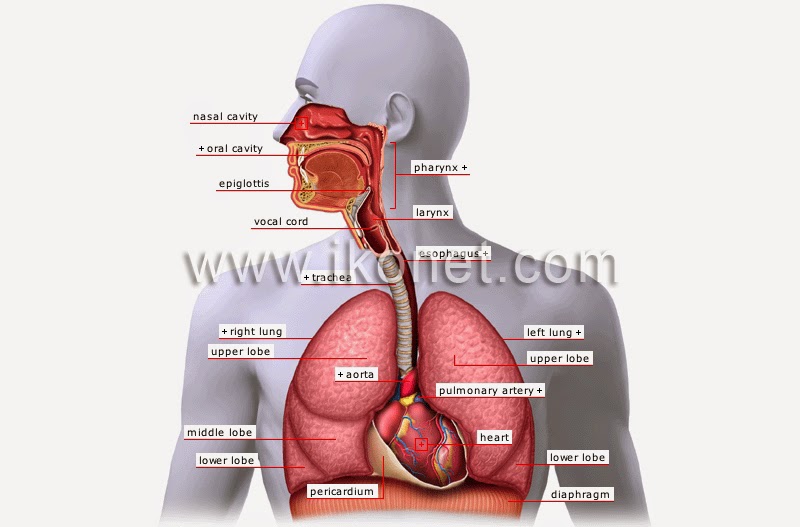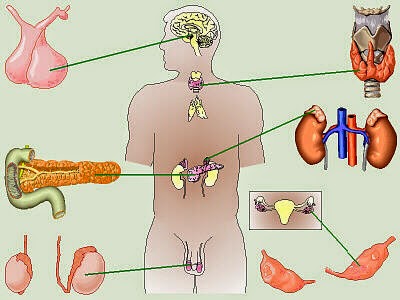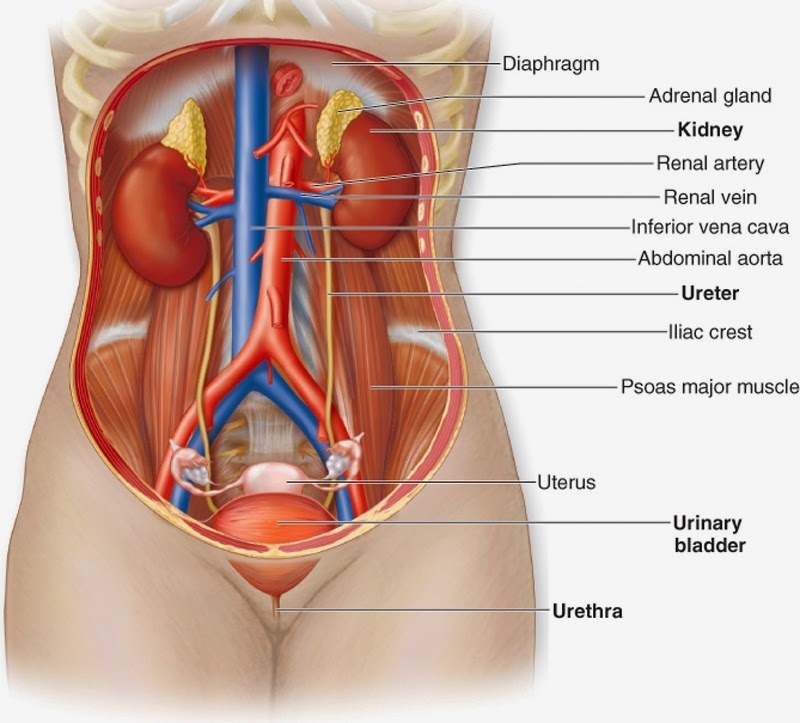RESPIRATORY SYSTEM

Breathing involves intake of oxygen (inspiration) from atmospheric air and expulsion of carbon dioxide (expiration). The respiratory system is composed of nostrils, wind pipe or trachea, bronchi, bronchioles and lungs. The lungs are enclosed in a compartment formed by the ribs, the breast bone and backbone and perform the function of respiration.
ENDOCRINE SYSTEM

Endocrine is the system of ductless glands linked by nervous and circulatory systems. They secrete hormones. The hormones control growth and other essential activities in the life process of the body.
Pituitary is a small gland situated beneath the brain. It secretes the important pituitrin hormone. Its oversecretion in childhood produces “giants” and in adult life “acromegaly” where growth of the parts of the body is disproportionately increased that gives a gorilla-like appearance.
EXCRETORY SYSTEM

Excretory system eliminates harmful waste products formed in the body. The main excretory organs are lungs, kidneys, skin and large intestine. Lungs throw out carbon dioxide and water vapour. Large intestine excretes waste matter of digestion as faeces and kidneys excrete urine. Skin excretes sweat. Kidneys take away the nitrogenous end products of the metabolism, chiefly urea. The blood entering kidneys brings urea, uric acid, large quantities of water, sugar and various salts which, by filtration, are eliminated with urine. Kidneys also absorb certain useful constituents such as glucose, water and salts. Skin protects the body, regulates the temperature of the body, excretes waste matter, gives the sense of touch and stores reserve food.

